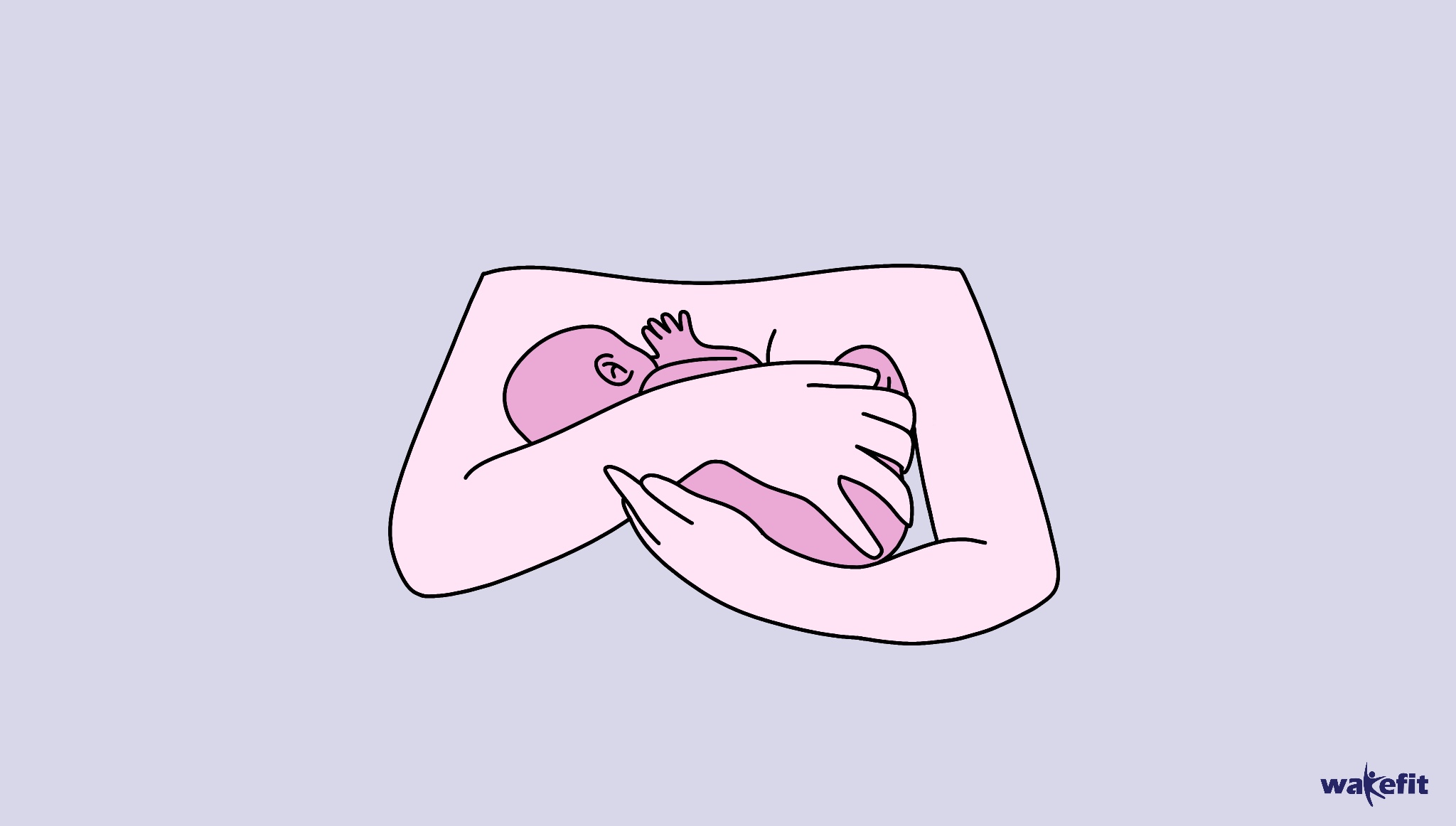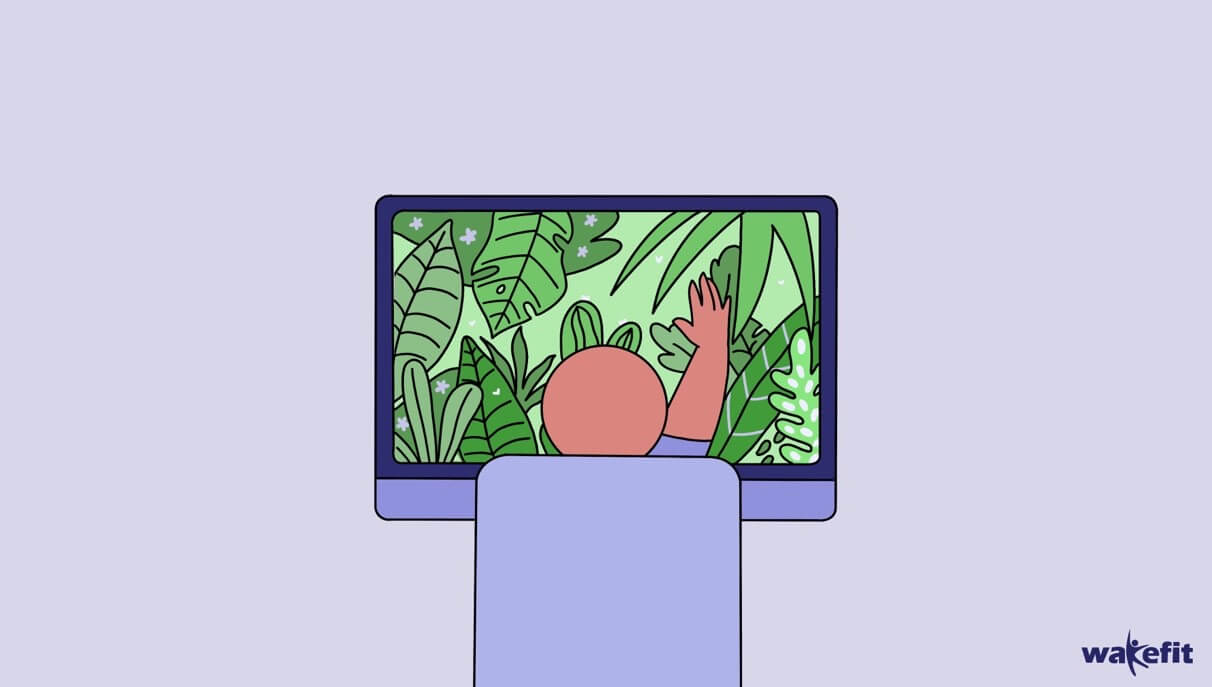Wakefit has always been a champion of innovation. We not only bring it into our products and designs but also acknowledge and admire it when we see someone else thinking and operating out of the box. No wonder then, it was such a pleasure for us to interview India’s first sleep expert for babies. Yes, you read that right. Ajita Seethepalli is a certified Child Sleep and Child Food Habits, Consultant. She uses behavioral coaching to help develop healthy habits in children.

Speaking of her unique profession and its challenges, Ajita says, “When I started my career as a Child Sleep Consultant 10 years ago, parents were not aware that such a profession existed. Frankly, neither was I, until I was a sleep-deprived mother myself!” Being the first Sleep Consultant in the country, she would have to constantly explain her work to skeptical parents who couldn’t really wrap their heads around what she did. She doesn’t blame them. This is why you will notice that her website www.kidscenter.in is so detailed and comprehensive. 10 years into her journey, Ajita sees that today there is a lot more awareness about her field, and she extends her gratitude to the internet, social media, and online support groups.
In case you are still wondering what exactly a child sleep consultant does, Ajita is here to the rescue. “A child sleep consultant works with the parents of a child who has trouble falling asleep and/or staying asleep for the age-appropriate number of hours.” She shares that this deprivation of sleep is typically due to heavy dependencies on unhealthy sleep associations like rocking, feeding, etc. As a sleep consultant then, her role is to advise and guide parents on how to teach their baby to fall asleep and stay asleep independently.
One of the most common mistakes parents tend to make, Ajita says, is to keep their child awake late into the evening or night hoping that they will fall asleep easily and sleep through the night or wake up late in the morning. According to her, this commonly tends to backfire given that overtired children generally don’t sleep well. She reveals that the other common sleep mistake some parents make is that they develop a nice schedule for the child, but do not work on eliminating their unhealthy sleep associations.
To understand unhealthy sleep associations better, we also need to keep in mind the attitude people have toward sleep. Speaking about the same, Ajita says that she has observed, in general, that we still look at sleep as a luxury and not as a necessity for a healthy life. There are several studies, which we at Wakefit have also highlighted over the years, that show the unhealthy relationship between lack of sleep and overall health. Deprivation of sleep can cause heart diseases, obesity, stress-related disorders among other things.
One way to stop seeing sleep as a luxury is to create awareness about the need to have a perfect sleep space. Ajita gives us a sneak peek into her ideal sleep environment. She says that a good sleep space includes a dark room, limited or zero exposure to blue light from computer screens, TV, mobile phones, etc., cool temperature, not too many distractions in the bed or in the bedroom like toys and a bed that is baby safe. We would like to add to that the need to invest in the right sleep products. Wakefit’s beds, memory foam mattresses, bedsheets, pillows, etc. are all designed prioritizing this need for good sleep. You can shop for our products here.
Digging deeper into the conversation around sleep deprivation, Ajita emphasizes the importance of sleep for new mothers. She has commonly noticed sleep deprivation in mothers suffering from postpartum depression or anxiety. Here is an uncut version of the advice Ajita wants to share with mothers suffering from postpartum depression and sleep difficulties:
“In the first month after giving birth, some mothers may go through a condition called “Baby Blues” wherein they may feel sad or gloomy. This condition resolves itself within 2-3 weeks and should not be confused with Postpartum Depression or Anxiety (PPD). PPD on the other hand is a more serious condition and can trigger any time in the first year after birth. It has nothing to do with the personality, lifestyle, or habits of the mother – it is simply a complication of giving birth.
Studies show us that one in every five mothers go through PPD. In India, this isn’t well understood and it is not common for mothers to seek help. There is, unfortunately, a lot of shame associated with it – as the general tendency and social pressure is to “just cope with it”. Unlike Baby Blues, PPD tends to need some professional help in the form of counseling and in some cases medication too. If left untreated, it can continue to affect the mother as chronic anxiety or depression for several years.
In my line of work, as you can imagine, I encounter mothers who come to me for their child’s sleep often also dealing with postpartum depression. It is completely unnecessary for mothers to just keep living with PPD. It can be debilitating as mothers tend to lose interest in joyous things in life, feel overwhelmed easily, or feel emotionally numb, many mothers also struggle to bond with their baby or on the other hand get overly anxious about their baby.
Some simple first line of advice would be to eat healthily, focus on staying hydrated throughout the day, find some time to step out, get some sun, exercise if they have healed from the birth, find things that make them laugh, and prioritize sleep and continue with any vitamins or supplements prescribed by their doctor (Tips for Handling Postpartum Depression). For most mothers, this may be enough. But if a mother is still battling PPD, she should visit her doctor and/or consider counseling sessions.”
While the Postpartum Depression is a chronic condition, it is found that generally all parents of newborns are exhausted and sleep-deprived. Newborn babies sleep a lot – between 16-19 hours per day is considered normal. Ajita says that keeping a newborn baby awake for long periods of time, can cause them to get tired and stressed. Newborns tend to wake up, feed, burp, and literally go back to sleep after that. To help your baby sleep well, learn to swaddle your baby correctly, give your baby early morning sun time to avoid day-night confusion, and don’t keep your baby awake for too long or get them too stimulated, advises Ajita. The better your baby sleeps, the easier it will be for you to get quality rest.
If you are considering starting sleep coaching for your baby, Ajita encourages you to begin as early as possible. In her experience, sleep training between 5-12 months is easiest. She adds however that following correct practices from birth can avoid having to sleep train., which is why many parents who have worked with her to sleep train their first child, often take up the new baby consultation in their last trimester itself so that way they are prepared on how to create healthy sleep practices right from Day 1!
Quick-fire questions
- What is the funniest or weirdest sleep thing someone has ever told you?
I can tell you a weird sleep story a client came to me with. Her 18-month-old son was a very poor sleeper and would sometimes even stay awake for two hours in the middle of the night. She lived in a joint family where some of the members suspected that a certain “someone” had put a curse or spell on the child. So, the family did lots of pujas and havans to get rid of it, but nothing worked. Luckily the mother still decided to sleep train her baby, against the family’s wishes. By the end of the first week, her adorable baby boy was sleeping through the night!
- What is your favorite bedtime snack?
I don’t generally have a bedtime snack. But on the odd occasion, I do, it will almost always be a small piece of dark chocolate.
- Which was the last book/movie that instantly put you to sleep?
I sleep through almost every movie especially when it’s past 11 pm…it’s almost like a lullaby to me 😊




No Comments